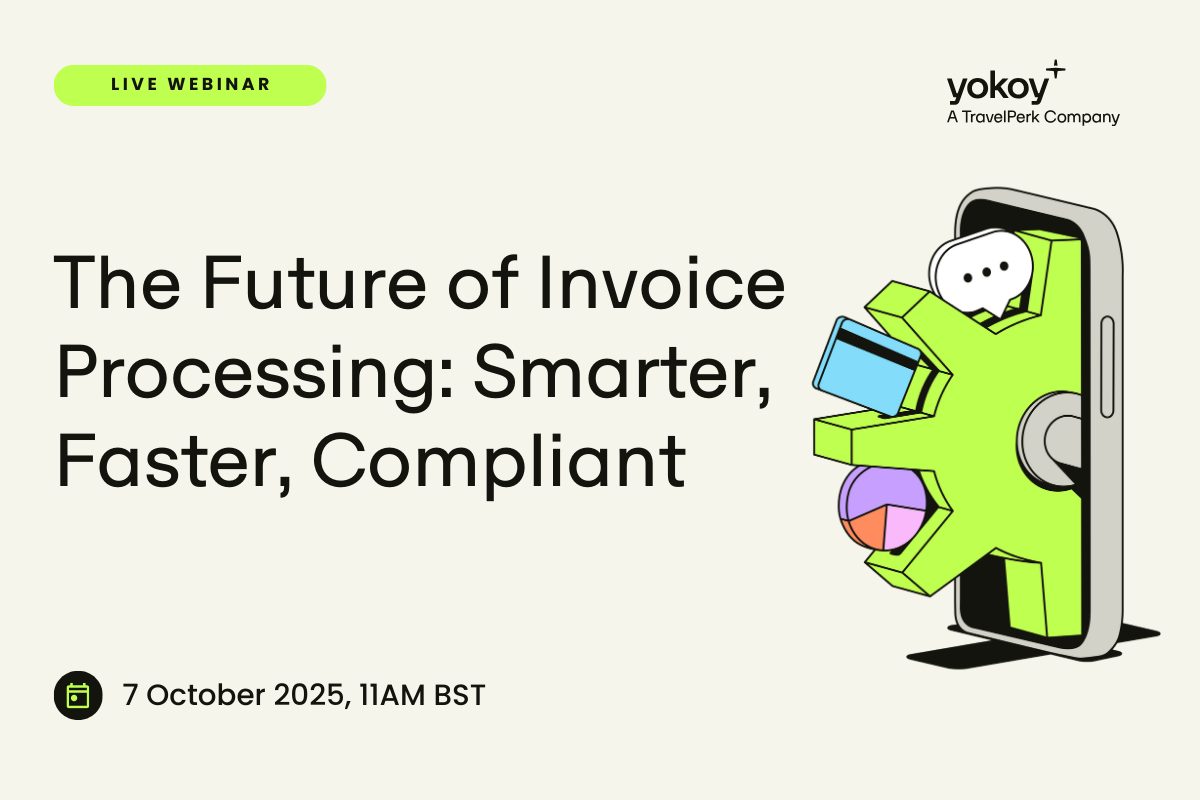Home / What Belongs in Your 2025 Tech Stack?
What Belongs in Your 2025 Tech Stack?
- Last updated:
- Blog

Remember when the buzz around finance transformation meant a new spreadsheet template and a coffee-fuelled meeting marathon? Those days are long gone. In 2025, finance leaders are architects of data-driven, AI-powered, automation-savvy ecosystems that are the engine of every corporation.
Today’s CFO is expected to deliver real-time insights, ensure airtight compliance, and scale operations globally. All this is done while keeping costs down and keeping teams agile. The secret weapon? A future-ready tech stack built not just for finance, but for the pace of change.
What belongs in a modern finance toolkit: From AI tools and automation to cloud-native platforms for tutorials and smart workflows. Whether you’re evaluating your current stack or building from scratch, choosing the right tech stack is not a matter of IT preference but a smart finance strategy.
Why your finance tech stack matters more than ever
Finance teams face growing regulatory complexity. With global operations and a shortage of digitally fluent talent, the right tech stack helps you uphold agility, accuracy, and control.
Staying compliant with cross-border tax rules, ESG requirements, and evolving audit standards demands real-time data, embedded automation, and smart workflows. Yet many teams still rely on outdated and isolated systems that lack web application support or flexibility for modern interfaces, creating blind spots and manual workarounds.
Finance professionals must work across platforms and use tools that support intuitive user experiences. This is where AI tools and machine learning step in: They automate tasks like expense validation, fraud detection, and reporting while enabling faster, more strategic decision-making. And all this without requiring CFOs to understand programming languages like Python, PHP, or Next.js.
Legacy ERPs and monolithic backends limit scalability and innovation. Finance operations become reactive and fragmented without support for smooth migrations, routing automation, or integration with tools like Microsoft Dynamics or Amazon Web Services (AWS).
A modern, cost-effective, cloud-native stack combines frontend flexibility, server-side performance, and modular architecture.
Ultimately, the company’s tech stack should scale with the business itself, support global workflows, and empower teams. In today’s environment, success and stagnation differ in how well your tools work together.
Blog article
How to Choose the Ideal Expense Management Software: Requirements and Features
How to choose the best expense management software for your company size. Improve efficiency and save costs with the right expense tracking solution.

Lars Mangelsdorf,
Co-founder and CCO
Key trends shaping the finance tech landscape
In the age of digital transformation, finance teams should be ahead of the game and technological shifts that redefine what modern businesses need—and expect—from their tech stack. The pressure is on to be faster, wiser, and more resilient, and these trends are leading the charge.
AI and machine learning
Artificial intelligence is no longer the domain of tech giants. Modern software development uses AI tools and machine learning models embedded directly into finance platforms, delivering far more than basic automation. They enhance forecasting by leveraging real-time data and pattern recognition to anticipate cash flow, spending trends, and budget deviations.
Intelligent fraud detection systems monitor anomalies across transactions and employee behaviour, while advanced reporting tools automate reconciliation and generate live dashboards. Even routine workflows—from expense categorisation to VAT validation—are now handled automatically and at scale. This shift allows finance professionals to move confidently towards strategic, data-driven decision-making.
Rise of API-first platforms
Modern finance platforms are increasingly built with popular frontend frameworks like React, Vue, or Angular. These frameworks enable responsive web apps that provide intuitive, consistent user experiences across devices. By prioritising API-first design, these platforms allow seamless connectivity between front-end and back-end systems, ensuring live data flows effortlessly across departments and tools.
Modern open-source or full-stack technologies like Node.js, Express.js, Django, and Python can support custom workflow automation, making it easier to tailor solutions to an organisation’s needs. This flexibility streamlines operations and accelerates feature development, so your finance function can adapt and scale quickly.
Shift to cloud and mobile tools
The days of on-premise software updates and IT bottlenecks are long gone. Today’s finance teams use cloud-native, mobile-optimised platforms that provide always-on access and significantly lower maintenance costs.
These tools are designed for the way teams actually work, offering mobile apps for capturing expenses, approving requests, and managing corporate cards on the go. With serverless infrastructure supporting growth without added overhead, and real-time syncing between mobile and web platforms, users enjoy a unified experience across devices.
Compliance features, including audit trails and document access, are available anytime, anywhere. Today, approving a claim or reviewing financial data from a smartphone isn’t a luxury but a daily operational requirement.
Focus on regulatory readiness
With new tax regulations, sustainability disclosures, and industry-specific mandates emerging at speed, finance teams must always be audit-ready. Compliance is no longer a box-ticking exercise; it must be deeply embedded within the technology stack.
Modern platforms make this possible with built-in audit trails that track every transaction, automated document matching, and real-time policy enforcement to ensure consistency and accuracy. They also support region-specific tax logic, seamless VAT validation, and digital receipt capture, enabling teams to meet local compliance requirements effortlessly.
What belongs in a future-proof finance tech stack
AI-powered expense management tools: AI-driven expense platforms automate categorisation, flag anomalies in real-time, and streamline workflows through mobile apps and backend integrations.
Integrated travel & payment solutions: Unified travel and payment tools connect bookings, (corporate) cards, and expense policies to improve visibility, control, and compliance across finance operations.
Advanced FP&A and forecasting tools: Modern FP&A systems use machine learning and real-time data to deliver predictive forecasts, dynamic dashboards, and scenario planning capabilities.
Modern ERP and accounting software: Cloud-native finance tools often run on robust providers like AWS, offering scalability, data security, and performance for real-time financial operations.
Regulatory compliance and ESG reporting tools: Built-in compliance tools support tax, audit, and ESG reporting with real-time validation, automated documentation, and flexible regulatory workflows.
Blog article
Automated Expense Reporting: Simplify Expense Tracking and Maximize Compliance
Automated expense reporting helps you simplify expense tracking, enforce compliance, and streamline your expense management workflows. See how it works.

Lars Mangelsdorf,
Co-founder and CCO
How to build your 2025 tech stack—and how not to
Your finance tech stack is either a strategic growth enabler or a costly constraint. CFOs must step into increasingly digital leadership roles, assembling the right stack. It’s less about what looks good on a slide deck and more about building a connected, scalable, and intelligent ecosystem for real teams that works in real life.
How to build your 2025 tech stack
Building a future-ready finance tech stack starts with clarity. Understanding your team’s needs, gaps, and goals. With the proper foundation, you can create a connected, automated system that scales as your business evolves.
Start with a needs and gaps audit: Planning upfront reduces the risk of later complex migrations, especially when moving away from rigid legacy systems.
Prioritise interoperability and automation: Choose API-first, integration-friendly platforms that allow seamless communication across systems. Look for systems with dynamic routing capabilities that adapt approval flows and compliance checks to local requirements.
Choose configurable, user-friendly solutions: Even for beginners, these platforms are designed to be intuitive, with user interfaces that reduce training time and support rapid adoption across teams.
Consider AI capabilities and future scalability: Future-ready stacks must support AI tools, machine learning for forecasting and fraud detection, and cloud-native infrastructures that ensure scalability, whether growing into new markets or scaling finance operations without adding headcount.
Common mistakes to avoid
Whether you’re a fast-growing startup or an enterprise-level operation, building the right tech stack early helps avoid costly migrations and technical debt later.
Relying on siloed, disconnected systems: Fragmented backend tools, spreadsheet workarounds, and standalone apps block real-time visibility and lead to duplicated effort and compliance risks.
Choosing tools without integration flexibility: Platforms that lack robust APIs, or don’t support modern web development standards like Node.js, Express.js, or serverless architecture, quickly become roadblocks instead of enablers.
Ignoring user experience and adoption needs: Overlooking the importance of a smooth user interface and mobile-first design can lead to low adoption rates, inconsistent data entry, and growing resistance from end users.
Underestimating the value of AI and data-driven decision support: Treating AI as a “nice to have” rather than a strategic tool for automation, forecasting, and real-time spend analysis leaves insights buried and decision-making reactive.
How Yokoy supports a future-ready finance tech stack
For finance leaders looking to modernise their operations without adding complexity, Yokoy offers a unified, intelligent platform that aligns perfectly with the needs of a 2025-ready tech stack. By consolidating multiple functions into one intelligent platform, Yokoy provides a cost-effective alternative to stitching together siloed tools.
Centralises and automates expense management
Yokoy combines expense, invoice, and card management into one intelligent platform, automating the entire workflow from receipt capture to reimbursement. Your employees can submit expenses via a mobile app, while finance teams benefit from real-time data, automatic categorisation, and touchless approval processes. This reduces manual effort, ensures policy compliance, and eliminates delays, even in multi-layered approval chains.
Seamlessly connects with ERPs, travel platforms, and card providers
Built with an API-first approach, Yokoy easily integrates with popular ERP systems, business travel platforms, and global card providers, enabling your finance team to consolidate all spend-related data in one place. These backend connections allow for real-time transaction syncing, faster reconciliation, and enhanced financial visibility across departments and borders.
AI-driven insights, anomaly detection, and policy control
Using advanced machine learning, Yokoy analyses spending patterns, detects outliers, and enforces company policies dynamically without requiring constant manual oversight. The platform flags potential fraud, suggests optimisations, and learns from previous decisions, enabling more accurate reporting and proactive cost control. This way, AI tools can help you make smarter, faster decisions.
Instant reports can be generated for auditors and regulators, and robust automation dramatically reduces the time and risk associated with traditional audit processes.
Features tailored to multi-entity, global organisations
Yokoy is designed for complexity, supporting multi-entity, multi-currency, and cross-border compliance requirements. Whether managing travel across regions or handling local tax regulations, the platform adapts to local needs while maintaining global oversight. Built-in scalability ensures the system grows with your business, while robust configuration options allow you to tailor rules, roles, and workflows to fit each entity or geography.
Next steps
Sounds great? See how Yokoy can streamline your spend management, enhance compliance, and give your team back valuable time. Book a demo today and discover what a modern finance platform can do for your business!
In this article
See intelligent spend management in action
Book a demoRelated content
If you enjoyed this article, you might find the resources below useful.


